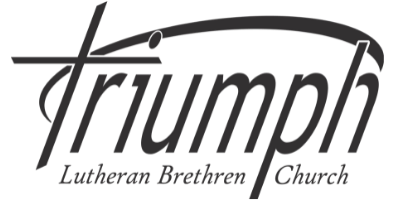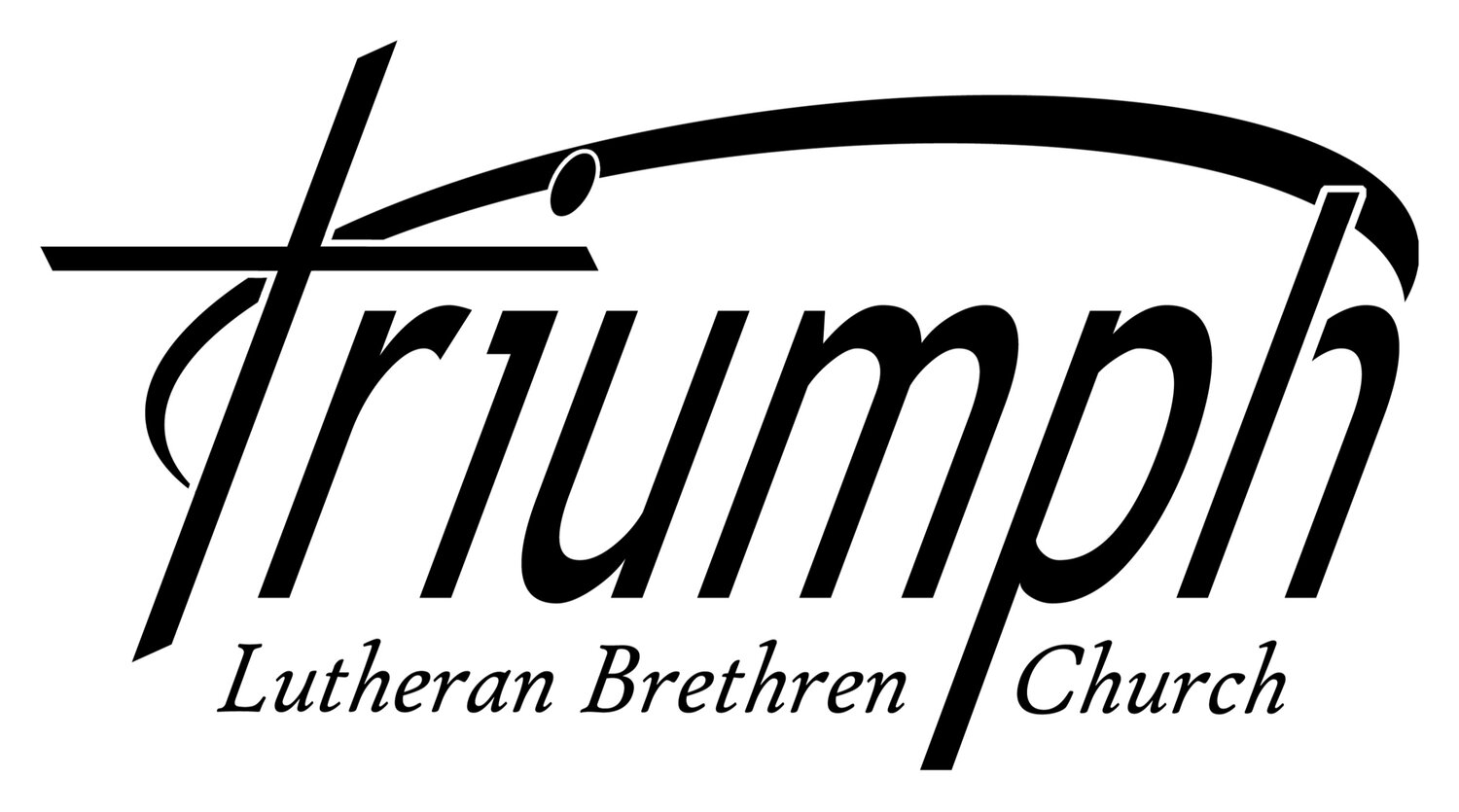Welcome to Triumph.
We are a group of imperfect people who want to know, love and serve God.
The heartbeat of Triumph is for people to know Jesus
as He transforms our hearts, homes and cities.
We’re so glad you’re here.
The Gospel changes everything, and we want to live like it.
Meet our Pastors
-

Doug Rogness
Lead Pastor
Triumph LBC
doug.rogness@triumphlbc.org -

Jeff Seaver
Senior Associate Pastor
Triumph LBC
jeff.seaver@triumphlbc.org -

Ben Bigaouette
Campus Pastor
Triumph East
ben.bigaouette@triumphlbc.org -

Sawyer Brunkow
Student & Young Adults Pastor
Triumph East
sawyer@triumphlbc.org -

Jay Price
Campus Pastor
Triumph West
jay.price@triumphlbc.org
Triumph’s Story
Triumph is a multi-site church in the Midwest with campuses in Moorhead, Minnesota (East Campus) and West Fargo, North Dakota (West Campus).
Triumph began in 1954 as the first mission/church plant of the Church of the Lutheran Brethren. After beginning under an oak tree in a park in Fargo, it's first home resided in a residential neighborhood in north Moorhead. In 1984 Triumph took a step of faith and moved south to a new, larger location in south Moorhead. The Lord blessed this move, and over the years, several additions were added to make room for all those God was calling to himself. That new location is still used as the home of what we refer to as our "East Campus.”
In 2004, Pastor Vern & Casey Baardson were called to lead a mission team to establish a second campus in the rapidly growing community of West Fargo, ND.
After several years of gathering in rented spaces, the West Campus facility was built and opened in 2009. The Lord's hand was evident as the West Campus congregation continued to grow, and in 2016 an addition was added to that ministry site.
Pastor Jeff Seaver served as Triumph's Lead Pastor for over 35 years until the end of 2020 when he transitioned into a new role as the Senior Associate Pastor, assisting both of our campuses. Pastor Doug Rogness accepted the call as Triumph's next Lead Pastor after serving as West Campus Pastor for several years. He began his new role on January 1, 2021.
We are excited to see how ministry will continue and the Kingdom will expand in the years to come. Triumph began as a mission outreach to the community, and that continues to be a focus for this body of believers in the Red River Valley and it’s surrounding communities.
Our Mission & Vision
Triumph’s Mission
Sharing the grace and truth in Jesus Christ as He’s changing our lives.
Triumph’s Vision
Triumph’s Vision is to see the life and message of Jesus transform Hearts, Homes and Cities.
Triumph’s Core Values
Jesus and God’s Word.
Grace and Truth.
Disciples who Disciple.
Our Purpose
We exist as a local expression of the body of Jesus Christ to reflect His person and mission in all aspects of our congregational life. We understand that in order for us to function as the body of Jesus Christ the following must take place:
1. Worship: It is essential that we as a congregation meet together to focus our lives on Jesus Christ in meaningful worship. This is in addition to our private or small group worship experience.
2. Discipleship: It is essential that we as a congregation are being equipped for the ministry of service, that we grow together in the grace and truth of Jesus Christ as we submit ourselves to the preaching and teaching of the Word of God.
3. Care: It is essential that we as a congregation be concerned with the physical, emotional, and spiritual needs of others, beginning with those in our midst and extending to those outside the congregation.
4. Evangelism: It is essential that we as a congregation share Christ's burden to see souls saved. This is accomplished by integrating both the awareness of lostness and the availability of the gospel into all areas of ministry, across the street and around the world.
We humbly acknowledge our dependence on Jesus Christ, as the living head of the church, realizing that it is only as we allow His Spirit to direct and guide us that God's purpose for us will be realized.
Our Statement of Faith
1. The Bible
The Bible, including both the Old and New Testaments as originally given, is the verbally and plenary inspired Word of God and is free from error in the whole and in the part, and is therefore the final authoritative guide for faith and conduct.
2. The Trinity
There is one God eternally existent in three distinct persons in one divine essence, Father, Son, and Holy Spirit.
3. God the Father
God the Father has revealed Himself as the Creator and preserver of the universe, to Whom the entire creation and all creatures are subject.
4. The Human Race
God created Adam and Eve in His image to live in fellowship with Him. They fell into sin through the temptation of Satan and thereby lost fellowship with God. Through their disobedience the entire human race became totally depraved, that is, self-centered sinners who oppose God, and who by nature are unable to trust, fear or love Him. They are subject to the devil, and are condemned to death under the eternal wrath of God.
5. God the Son
Jesus Christ, the Eternal Son, is the image of the invisible God. To accomplish our redemption, He became fully human, being conceived of the Holy Spirit and born of the virgin Mary. Jesus Christ, who is true God and true man, by His perfect obedience and substitutionary death on the cross, has purchased our redemption. He arose from the dead for our justification in the body in which He was crucified. He ascended into heaven, where He is now seated at the right hand of God, the Father, as our interceding High Priest. He will come a second time personally, bodily, and visibly to gather the believers unto Himself and to establish His millennial kingdom. He will judge the living and the dead and make an eternal separation between believers and unbelievers. His kingdom shall have no end.
6. God the Holy Spirit
The Holy Spirit is a divine person eternally one with the 2 Father and with the Son. Through the Word of God He convicts people of sin, persuades them to confess their sinfulness to God, and calls them to faith through the Gospel. He regenerates, sanctifies, and preserves believers in the one true faith. He comforts, guides, equips, directs, and empowers the church to fulfill the great commission.
7. Means of Grace
The knowledge and benefit of Christ's redemption from sin is brought to the human race through the means of grace, namely the Word and the sacraments.
8. Law & Gospel
Through the Word of the Law God brings sinners to know their lost condition and to repent. Through the Word of the Gospel He brings sinners to believe in Jesus Christ, to be justified, to enter the process of sanctification, and to have eternal life. This occurs as the Holy Spirit awakens them to see their sin, convicts them of their guilt of sin, and calls them to repent and believe, inviting and enabling them to accept God’s grace in Christ. Each one who thus believes is instantly forgiven and credited with Christ’s righteousness. The Word then teaches and guides the believer to lead a godly life.
9. Baptism
In the Sacrament of Baptism, God offers the benefits of Christ’s redemption to all people and graciously bestows the washing of regeneration and newness of life to all who believe. God calls the baptized person to live in daily repentance, that is, in sorrow for sin, in turning from sin, and in personal faith in the forgiveness of sin obtained by Christ. By grace we are daily given the power to overcome sinful desires and live a new life in Christ. Those who do not continue to live in God’s grace need to be brought again to repentance and faith through the Law and Gospel. Because the sinfulness of human nature passes on from generation to generation and the promise of God’s grace includes little children, we baptize infants, who become members of Christ’s believing church through baptism. These children need to come to know that they are sinners with a sinful nature that opposes God. Through the work of the Holy Spirit, they need to confess their sinfulness and yield to God; and possess for themselves forgiveness of their sin through Jesus Christ, as they are led from the faith received in infant baptism into a clear conscious personal faith in Christ as their Lord and Savior and being assured of salvation, rely solely on the finished work of Christ, and the power of the Gospel to live as children of God.
10. Communion
In the Sacrament of Holy Communion, Christ gives to the communicants His body and blood in, with, and under the bread and wine. He declares the forgiveness of sin to all believers, and strengthens their faith.
11. Salvation
Eternal salvation is available to every living human being on earth by God’s grace alone through faith alone in Christ alone. This salvation consists of an instantaneous aspect and an ongoing, continual aspect.
12. Justification
Justification is God’s gracious act by which He, for Christ’s sake, instantaneously acquits repentant and believing sinners and credits them with 3 Christ’s righteousness. At that moment, God gives each one who believes a new and godly nature and the Holy Spirit begins the process of sanctification. There is no place for human effort in justification.
13. Sanctification
Sanctification is God’s gracious, continual work of spiritual renewal and growth in the life of every justified person. Through the means of grace, the Holy Spirit works to reproduce the character of Christ within the lives of all believers, instructing and urging them to live out their new nature. The Holy Spirit enables believers more and more to resist the devil, to overcome the world, and to count themselves dead to sin but alive to God in Christ Jesus. The Holy Spirit produces spiritual fruit in and bestows spiritual gifts upon all believers. He calls, empowers and equips them to serve God in the home, in the community, and as part of the Church Universal. The process of sanctification will be complete only when the believer reaches glory.
14. The Church
The Church Universal consists of all those who truly believe on Jesus Christ as Savior. The local congregation is an assembly of believers in a certain locality among whom the Gospel is purely taught and the sacraments are rightly administered. The confessing membership of the local congregation shall include only those who have been baptized into "the name of the Father, and of the Son and of the Holy Spirit," confess personal faith in the Lord Jesus Christ, maintain a good reputation in the community and accept the constitution of the Church of the Lutheran Brethren. It cannot, however, be avoided that hypocrites might be mixed in the congregation; that is, those whose unbelief is not evident to the congregation.
15. Church Governance
The Church of the Lutheran Brethren practices the congregational form of church government and the autonomy of the local congregations. The office of pastor and elder is to be filled by men only. The synodical administration has an advisory function as it relates to the congregation and an administrative function as it relates to the cooperative efforts of the congregations.
16. Lutheran Confessions
The Lutheran confessions are a summary of Bible doctrines. We adhere to the following confessional writings: The Apostles’ Creed, Nicene and Athanasian Creeds, unaltered Augsburg Confession, and Luther’s Small Catechism.

